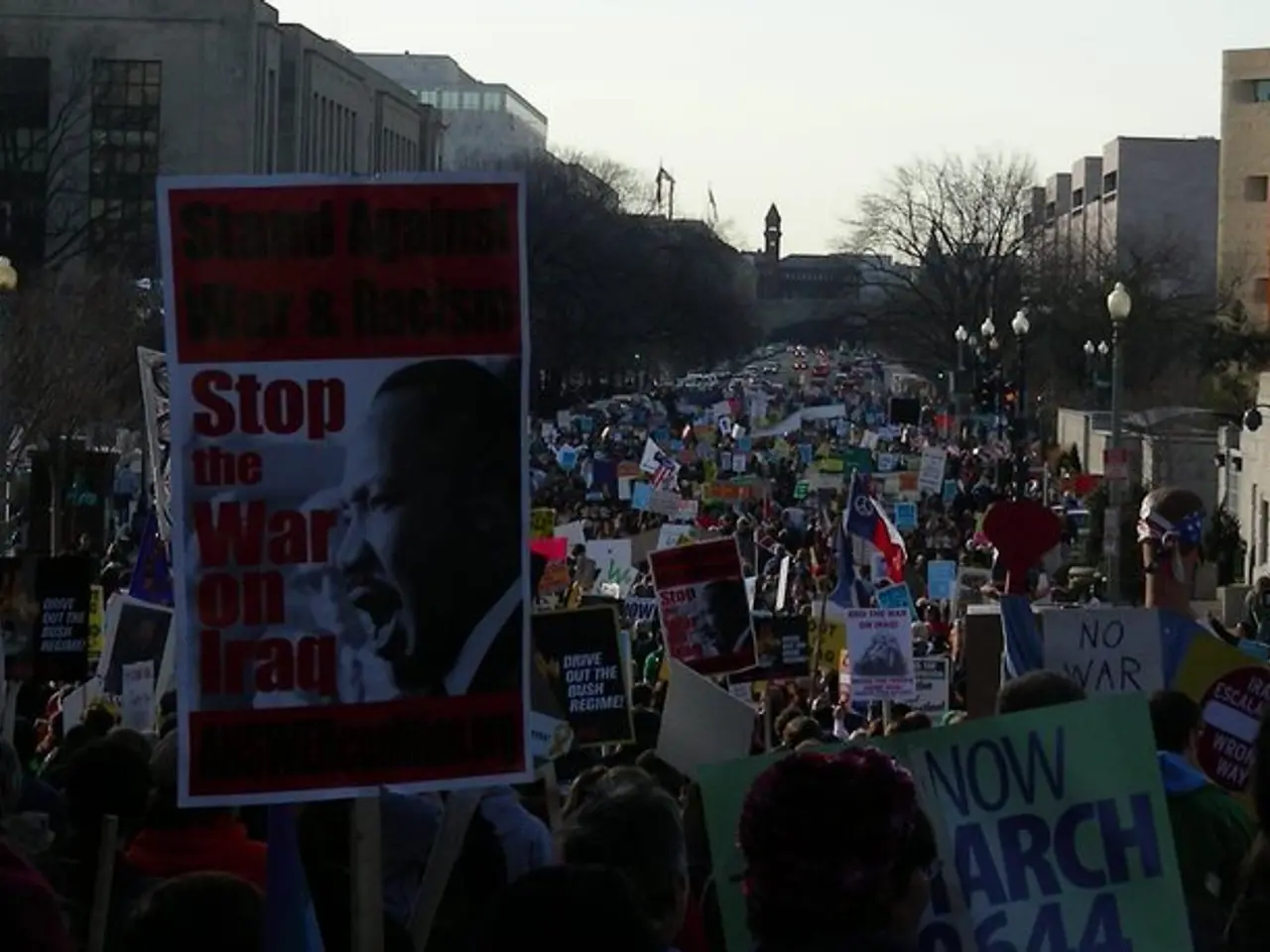Unacceptable Actions: Public demonstrations directed towards private residences are not tolerated
In recent times, a contentious trend has emerged in Germany, with activists and protesters increasingly targeting the private residences of politicians and company CEOs. This development, while driven by activists' strategies to escalate pressure, has raised significant concerns about privacy rights and potential legal violations.
Last year, left-wing activists staged a protest in front of the residence of North Rhine-Westphalia's Interior Minister, Herbert Reul. This demonstration, according to critics, was not about dialogue but about intimidation. The same sentiment was echoed in eastern Germany, where mayors and councilors have been repeatedly threatened and harassed by right-wing extremists in front of their private homes.
The left-wing alliance "Disarm Rheinmetall" has announced plans to march in front of the house of Rheinmetall CEO, Armin Papperger, to protest against war. The call to protest at Papperger's residence has already alerted the state protection. The demonstration, intended to "get up close and personal" with Papperger, targets not only him but also his family, a move that some deem crosses red lines of reason, decency, and the law.
The radicals demanding the protest have also requested that the police turn off the video surveillance on site, a request that further complicates the issue of privacy and security. The private life is considered a taboo for protests, and this trend seems to be becoming increasingly fashionable, unfortunately.
Such threats and intimidation should never be a means of political debate. In several federal states, corona deniers and right-wing conspiracy theorists have appeared in front of the houses of state and local politicians, a disturbing development that underscores the need for a reevaluation of the boundaries of reasonable political debate.
Protests targeting private entities like corporate headquarters have grown, as seen in demonstrations against companies like GEO Group linked to immigration detention contracts. While these protests tend to cluster around workplaces or public corporate spaces, there are increasing reports of protests occurring at or near private homes of influential figures.
CEOs and politicians embody concentrated economic and political power, and protesters often view targeting their private residences as a means of applying pressure that traditional public protests cannot achieve. This is particularly true when institutional channels for accountability seem ineffective or slow.
However, protesting at private residences introduces legal and ethical challenges, notably the right to privacy and protection from harassment. While public speech and assembly are protected rights, they do not extend unconditionally onto private property or in ways that intimidate or threaten individuals in their homes. Courts often balance the constitutional right to protest with privacy rights and laws against trespassing or harassment.
In summary, the increase in protests at private residences is both a political trend driven by activist strategies to escalate pressure and a controversial practice that can infringe on privacy rights. Whether this constitutes a violation depends on the manner of protest (e.g., peaceful presence vs. harassment), local laws, and the specific context. Legal frameworks and social norms continue to evolve in response to these tensions.
It is crucial for the state to put a stop to such activities, regardless of the political affiliation of the targeted individual, to ensure the safety and privacy of all citizens and maintain the integrity of democratic processes.
- The announcement by the left-wing alliance "Disarm Rheinmetall" to protest at Rheinmetall CEO Armin Papperger's residence adds to the growing trend of politics encroaching on general-news areas, such as private homes, potentially violating privacy rights and endangering those involved.
- Confrontations in front of private residences, like the recurring threats against mayors and councilors in eastern Germany by right-wing extremists, and the planned protests against CEOs, exemplify the contentious blurring of the line between peaceful and intimidating political activism.








